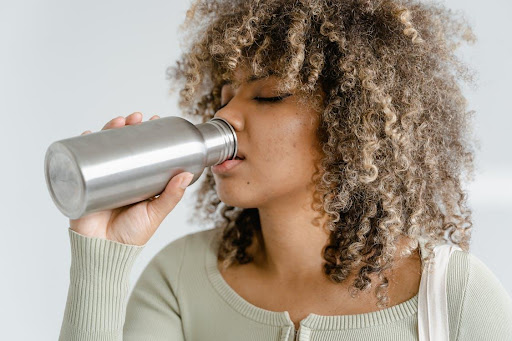
As the summer sun makes way for the crisp chill of fall and the frigid temperatures of winter, we often find ourselves paying less attention to our hydration needs. It’s easy to associate hydration with hot summer days, but staying properly hydrated is essential year-round. In fact, maintaining adequate hydration during the fall and winter months is just as crucial for our health and well-being. Let’s explore the reasons whyhydrationremains important in the cooler seasons and offer practical tips to ensure you stay adequately hydrated.
Understanding the Need for Hydration

Hydration is a fundamental aspect of human health, and it plays a vital role in various bodily functions. Water helps regulate body temperature, aids digestion, carries essential nutrients to cells, flushes out toxins, and supports overall well-being. Even in cooler months, our bodies require an adequate intake of fluids to maintain these functions. One common misconception is that we lose less fluid in the fall and winter because we sweat less. While it’s true that we may notperspireas profusely as we do during the summer, our bodies still lose water through respiration, urine, and other natural processes. Moreover, indoor heating and low humidity levels in heated spaces can contribute to dehydration.
The Impact of Cold Weather on Hydration

The colder months often come with drier air, both indoors and outdoors. This dry air can increase the rate of moisture loss from your body. In cold weather, we might not feel as thirsty as we do in the heat, which can lead to reduced water intake. This reduced intake, combined with increased loss due to drier conditions, can set the stage for dehydration.
Furthermore, cold weather can deceive us into thinking that we’re adequately hydrated. The sensation of thirst is often less pronounced in the winter, making it easier to overlook the need for water. However, it’s crucial to remain vigilant and proactive about your hydration during these seasons.
The Role of Proper Hydration in Health

Adequate hydration remainsessentialfor maintaining good health, no matter the season. Here are some reasons why staying hydrated in the fall and winter is particularly important:
Immune System Support: Staying hydrated helps boost your immune system, making you less susceptible to seasonal illnesses such as the flu and colds.
Skin Health: Dry, heated indoor environments can sap moisture from your skin. Proper hydration can keep your skin supple and reduce the risk of dryness and irritation.
Digestive Health: Maintaining hydration is crucial for proper digestion. It helps ensure that your digestive system functions optimally, reducing the risk of issues like constipation.
Energy Levels: Dehydration can lead to fatigue and decreased energy levels. Staying well-hydrated can help you remain alert and active during the colder months.
Tips for Staying Hydrated in Fall and Winter

Now that we understand the importance of staying hydrated during the fall and winter, let’s explore some practical tips to help you maintain proper hydration:
1. Start Your Day with Warm Water
Drinking a glass of warm water in the morning can be comforting and hydrating. It kickstarts your metabolism, helps flush out toxins, and prepares your body for the day ahead. You can even add a slice of lemon for a refreshing twist.
2. Herbal Teas and Infusions
Hot herbal teas like chamomile, ginger, or peppermint can be a hydrating alternative to plain water. These teas not only provide warmth but also offer various health benefits, including soothing digestion and promoting relaxation.
3. Stay Mindful of Your Urine Color
One of the simplest ways to monitor your hydration status is to pay attention to the color of your urine. If it’s paleyellowor straw-colored, you’re likely well-hydrated. Dark yellow or amber urine is a sign that you need to drink more water.
4. Hydration-Rich Foods
Incorporate foods with high water content into your diet. Fruits like watermelon, oranges, and cucumber, as well as vegetables like zucchini and celery, can contribute to your overall hydration.
5. Use a Humidifier
Indoor heating systems can dry out the air in your home, leading to increased moisture loss. Using a humidifier can help maintain a more comfortable and hydrated indoor environment.
6. Set Hydration Goals

Just as you might have fitness or dietary goals, set daily hydration goals. Aim to drink a specific amount of water each day, whether through plain water, herbal tea, or hydrating foods.
7. Carry a Reusable Water Bottle
Having a reusable water bottle with you makes it easy to sip water throughout the day. It’s a convenient reminder to stay hydrated, especially when you’re on the go.
8. Hydration Apps
There are several smartphone apps designed to help you track and maintain your hydration. These apps can send reminders and monitor your daily water intake.
9. Don’t Skip Meals
Regular meals often include beverages or hydrating components. Skipping meals can result in reduced overall fluid intake, so make sure you eat at regular intervals.
10. Avoid Excess Caffeine and Alcohol
Both caffeine and alcohol can have dehydrating effects. While it’s okay to enjoy them in moderation, be mindful of your consumption, and balance them with water or hydrating beverages.
11. Warm Water-Based Soups
Soups are not only comforting but also hydrating. Warm, broth-based soups can help replenish fluids and providenourishmentduring the colder months.
12. Listen to Your Body
Always listen to your body. If you feel thirsty, drink water. Ignoring your body’s signals can lead to dehydration.
Final Thoughts

Staying hydrated during the fall and winter months is essential for maintaining your health and well-being. Despite the cooler temperatures, the dry air, indoor heating, and the body’s ongoing need for water make it important to continue prioritizing hydration. So, embrace the art of staying hydrated all year round and nurture your health in every season. Stay safe and learn more from #1 AAA CE Trainings continuing education training,eetsonline.com/ce.
